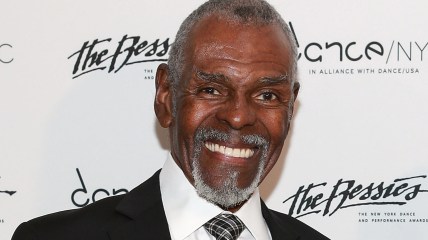Shirley Jo Finney, trailblazing Black director, dies after cancer battle
Finney spent decades directing drama plays, including Ifa Bayeza's "The Ballad of Emmett Till," about the 14-year-old boy kidnapped, tortured and murdered by two white men in 1955.
Shirley Jo Finney, whose career saw her go from an actor to an award-winning director who spent nearly 40 years delving into the Black experience onstage, has died of cancer at 74.
Diana Finney, her sole immediate survivor, said her sister died on Oct. 10 from multiple myeloma in a hospital in Bellingham, Washington, The New York Times reported.
“She was very much drawn to material by great playwrights of color,” recalled Sheldon Epps, emeritus creative director of the Pasadena Playhouse, where Finney directed twice. “But it was also a result of the categorization that artists of color still suffer, where they are assigned to Black plays and not thought of for plays by other writers.”

Finney received a bachelor’s degree in drama in 1971 and a master’s degree in theater arts two years later from the University of California, Los Angeles.
After acting in various television shows and films, director Bud Greenspan cast her in the 1977 TV movie “Wilma,” which also starred Cicely Tyson. While it garnered mixed reviews, John J. O’Connor of The New York Times wrote it was “given a touch of substance through a good performance by Shirley Jo Finney.”
She continued to appear on TV shows, including “Lou Grant,” “Hill Street Blues” and “Night Court” into the 1990s, but by then, she had also begun to direct plays.
“I love actors, and I love that process of bringing people who are strangers together, to work for a common purpose,” Finney told The Los Angeles Times in 1999. Describing the process as “orgasmic,” she noted, “I love creating an atmosphere where you feel comfortable enough to share who you are, to create. And then you can go within to give the best you can give.”
She directed an array of dramas on stage, such as Ifa Bayeza’s “The Ballad of Emmett Till,” about the 14-year-old boy who was kidnapped, tortured and murdered by two white men in Mississippi in 1955, and Dael Orlandersmith’s “Yellowman,” which examines interracial prejudice through the perspective of two young lovers, one with a light skin tone and the other dark.
Finney referenced her background when asked about her decision to direct plays with Black characters and issues. She told The Los Angeles Times in 1999 that she had “always been ‘the first African American,'” referring to the fact that hers was the first Black family to move to the community she integrated, and she was the first African American to enroll in UCLA’s M.F.A. program.
She worked at many venues, including the Mark Taper Forum in Los Angeles, the Cleveland Play House, the Actors Theater of Louisville, the Goodman Theater in Chicago, and the Fountain Theater in Los Angeles, where she directed eight plays since 1997.
In 2015, she was approached by Stephen Sachs, creative director of the Fountain Theater, to direct his version of Claudia Rankine’s book-length 2014 poem and series of articles concerning race in modern culture, “Citizen: An American Lyric.”
Finney said in a 2017 interview published on the Center Theater Group’s website that “Citizen” reminded her of “walking through and navigating those torrential waters of mainstream America when you are a person of color or ‘other,’ and what you have to swallow in order to survive.”
The trailblazing director’s earned prizes include three Los Angeles Drama Critics Circle Awards for solo play direction and the organization’s Milton Katselas Award for her career achievement.
Sachs praised Finney for creating her own shorthand to interact with performers.
“Actors had to learn to speak ‘Shirley Jo,'” said Sachs, according to The New York Times. “She spoke a language unto herself, with body movement and her cackling laugh. She had a way. When she spoke, she’d stand up, pace around the room, or rock on a chair and say, ‘I’m feeling it, I’m feeling it.’ She was almost like a shaman.”
Never miss a beat: Get our daily stories straight to your inbox with theGrio’s newsletter.


